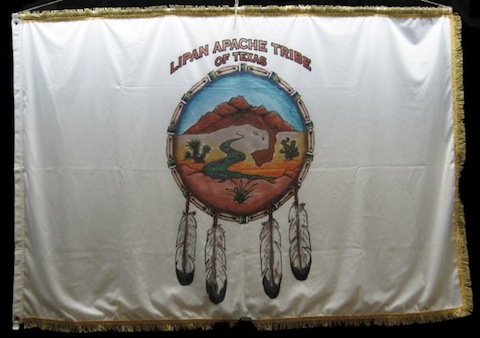
The federal government is becoming increasingly zealous about deporting convicted criminals who’ve completed their sentences. That official enthusiasm has led to some interesting legal conundrums, such as this case of an oil worker down in Texas:
A descendant of the Lipan Apache tribe who was convicted this summer of re-entering the United States after being deported was sentenced Wednesday to 14 months in federal prison.
Erick Ricardo Bonilla, 32, an oilfield worker who had lived in Odessa for six years before his arrest, will likely be deported after he is released, defense attorney Justin E. Weatherly said.
Bonilla’s mother had a green card, but Bonilla was born in Juárez, Mexico, “by accident,” Weatherly said. At trial, Weatherly argued that even though the federal government does not recognize the Lipan Apache, Bonilla should be allowed to live in the United States under the promise of “perpetual friendship” outlined in an arcane treaty between the Lipan people and the Republic of Texas.
The treaty in question, signed in January 1838, can be read here. The defense attorney’s argument is obviously novel, and one must have some sympathy for Bonilla give the federal government’s extremely poor track record of fulfilling its treaty obligations with Indian tribes. However, the real legal question is whether the federal government was bound to honor treaties made by the Republic of Texas after the unusual Ordinance of Annexation in 1845. I’m guessing that annexation voided all of the defunct Republic’s diplomatic efforts, which means that Bonilla’s lawyer can only get an A for effort.
But would the case be different if the Lipan Apache were federally recognized? The tribe has been vying for such recognition for an awful long time, but it’s a tough row to hoe:
Historically, tribes have been granted recognition through treaties, by the Congress, or through administrative decisions within the executive branch. In 1978, the Bureau of Indian Affairs established a regulatory process for recognizing tribes. The current process for federal recognition, found in 25 C.F.R. 83, is a rigorous process requiring the petitioning tribe to satisfy seven mandatory criteria, including historical and continuous American Indian identity in a distinct community. Each of the criteria demands exceptional anthropological, historical, and genealogical research and presentation of evidence. The vast majority of petitioners do not meet these strict standards, and far more petitions have been denied than accepted. In fact, only about 8 percent of the total number of recognized tribes have been individually recognized since 1960.
One potential stumbling block for the Lipan Apache: Due to warfare with the U.S. Army, the ranks of the Lipan Apache were reduced to less than 20 members by 1885, and they were all prisoners of war. Proving lineage from such a small ancestral group will be tough.


Like gas stations in rural Texas after 10 pm, comments are closed.